I know what you’re thinking. Mike, it’s September, why are you talking about the holiday season already?
Listen, my office is up the block from Rockefeller Center and directly across the street from Saks Fifth Avenue. I’m in no rush for the Tree or the Christmas show at Saks, harbingers of the holiday season, to return. But if you’re angling to win in Organic Search you should have already kicked off your SEO efforts by now.
Black Friday kicks off the holiday season and while my commute into the office has yet to be swamped with holiday tourists and shoppers (it will be soon enough, hence our search for a new office space) the Internet is different.
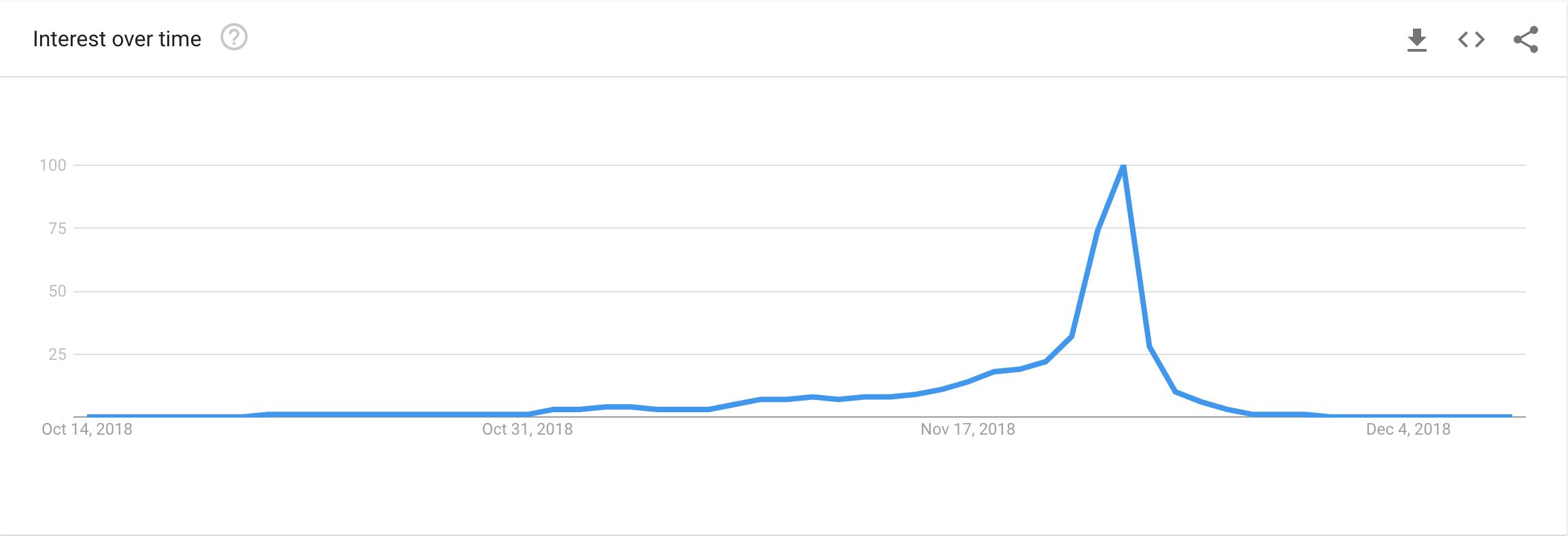
Shoppers start searching for Black Friday deals as early as October, and with Amazon clobbering competition—last year customers bought more than 18 Million toys and 13 Million Fashion items from the giant on Black Friday and Cyber Monday combined. It would be wise not to leave your Organic Search strategy to the last minute.
Don’t Wait Until Late September to Find Help
I know. You’re busy. You just got the budget approved. You were waiting for the new migration to finish. It’s still too late.
Every year in late September (like now) we get a lot of would-be clients that reach out to us for help. Every year we have to turn them away. Undoubtedly, they go with someone else and then reach out again a little earlier the next year and we first need to clean up the tactics from the previous year.
Don’t let this be you.
To avoid this, you need to contract with an agency partner that understands E-commerce and the seasonal nature of Organic Search, all while understanding the chain of SEO command to prepare your website for Black Friday, Cyber Monday and holiday shoppers.
But if you’re here then maybe you’re looking to clean up some tactics from last year and gain visibility and traffic for the upcoming holiday sales season. There’s a lot you can do if you act fast, short of simply hiring us, that will position your website before its even Halloween.
If you’re looking to rank for Halloween queries, we’ll see you next year. Holler at us around March.
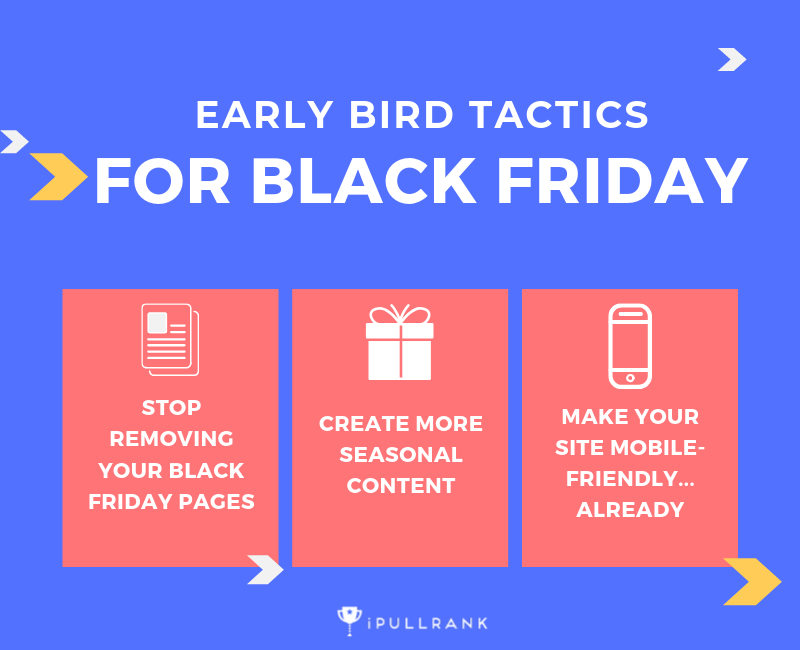
1. Stop removing your Black Friday/Cyber Monday sales pages
Merchandising and SEO teams tend to be diametrically opposed when deciding how to present deals. Merchandising works to create a main Black Friday/Cyber Monday deals page and populates it with sales from across the site. The homepage also provides real estate and category and individual product pages reflect those deep discounts as well.
Merchandising thinks it has done its job. Hint: It hasn’t.
While the main deals page is a fine approach for targeting Black Friday search traffic, the biggest mistake brands make is throwing out these URLs year after year. Once the sale is over, those pages are taken down and not created again until next season. Every year you’re building a lot of link equity up and starting over again.
These URLs should be made evergreen so that they can be recycled year after year, the link equity firmly in place. Year after year, this page will gain more and more equity.
- If you’ve retired old Black Friday/Cyber Monday pages, do a backlink audit and put a redirect strategy in place to consolidate the authority that you’ve built to all your Black Friday pages.
- For those of you that have a /black-friday-deals/ page that’s still live, you should have already changed the 2018s in your Black Friday, Small Business Saturday, Cyber Monday and Cyber Week page titles to 2019 as soon as those days were over.
- Also have a design and content strategy in place for what that page will display during the periods in between seasons. It’s not enough to change the page title and meta description and cross your fingers.
- Put up a “Black Friday is On Its Way – Shop these Deals in the Meantime” page to capitalize on current deals. Add lead generation tools to capture emails and alert customers when Black Friday deals are live.
2. Seasonal content is more than your sales pages
If you haven’t invested in seasonal content, then you’re missing out on opportunities to meet searchers in the research phase. Yeah, we know merchandising believes that bottom of funnel sales and product pages are all they need (more on why that is false later) but it is really the content that customers encounter along the way that powers holiday search traffic. With more and more shoppers researching throughout the entire holiday season, brands need to provide multiple entry points in addition to deal pages.
Seasonal content like gift guides, product finders, price comparisons, and specialized category pages are all additional opportunities to capture Organic Traffic before the start of Black Friday and then funnel those visitors toward purchase content.
There are a million long-tail phrases and iterations of those phrases that E-commerce content can target. This content should be a collaboration between SEO, content strategy and product to not only provide customer entry points but also surface and display business priorities. And the upside of investing in shopping content is that if executed correctly it can be evergreen.
Example: Say a major electronic retailer sets their holiday pricing strategy to provide various products at multiple affordable price points to meet the wide array of customers and become a one-stop-shop during the holiday season.
Content like “Best Flat Screen TVs for Under $500” or “Best Smart Speakers for Less Than $100” can reflect and highlight Merchandising’s priorities while also meeting Marketing’s needs. And unlike taking down your Black Friday pages, this content can be refreshed and promoted all year round to build authority, links, and visibility.
Come time to optimize for holiday season, these pages will already have strong organic visibility and track records (if optimized and tested) to drive conversion. No racing against the clock to get a new page to rank when you already have existing pages.
While your product pages target specific products, if you’re missing what we call superlative searches (best, cheapest, most affordable, recommended) then you are losing searches that will undoubtedly lead to a purchase.
3. If you’re not mobile, you’re not anywhere
Foot traffic on Black Friday is on the decline. With holiday sales extending far beyond Friday to Small Business Saturday, Cyber Monday and beyond, shoppers are staying in and getting the same door deals online. Binge watch and buy if you will. In New York, where there are always crowds, shoppers can opt-out of the Black Friday mob and wait for the same package to be delivered the next day.
Mobile is making holiday shopping even more competitive. Shoppers are on their phones comparing as they walk into your competitors’ store. Brands can’t neglect hyperlocal queries like “where to buy” and “stores that carry,” if they want to capture offline sales as well. As shoppers comparison shop on mobile while they physically shop in-store (Mobile in-store searches are up 30%) brands must get creative and target outside of the typical “brand + holiday deal” keyword variations.
Of course, none of this matters if your brand pages, shop locators, and local pages are not optimized well in advance of the holiday season. It’s also moot if your site UX/UI is not mobile-friendly.
Last-Minute SEO Tactics
Ok, so now I’m sure you’re like “Well, Mike, it IS September and we did wait too late. What can we do?”
My first answer is to contact us to get a jump on holiday SEO for 2020. It’s never too early.
My second response is to expand your idea of optimization.
What I mean by that is this: Typically, marketers are hyperfocused on a specific set of keywords leading up to the holiday season. They reach out and specifically say “I want to rank better for [keyword] because it represents X-amount of my business.”
I fundamentally believe that focusing on such a limited set of keywords is the wrong approach as it ignores the user journey and the rest of the marketing mix.
It’s this focus combined with procrastination that yields a lot of last-minute problems with tactical implementations. In other words, this is why so many people buy links around this time of year. If you have done SEO around Black Friday efforts, you know this is when most “link rentals” happen. You’ll see gradual increases in links focused on product pages starting around this time of year and then a rapid drop off of the same links heading into mid-January.
Do this enough and Google will get hip to you. But there are ways to improve link equity and keyword targeting even in the short term.
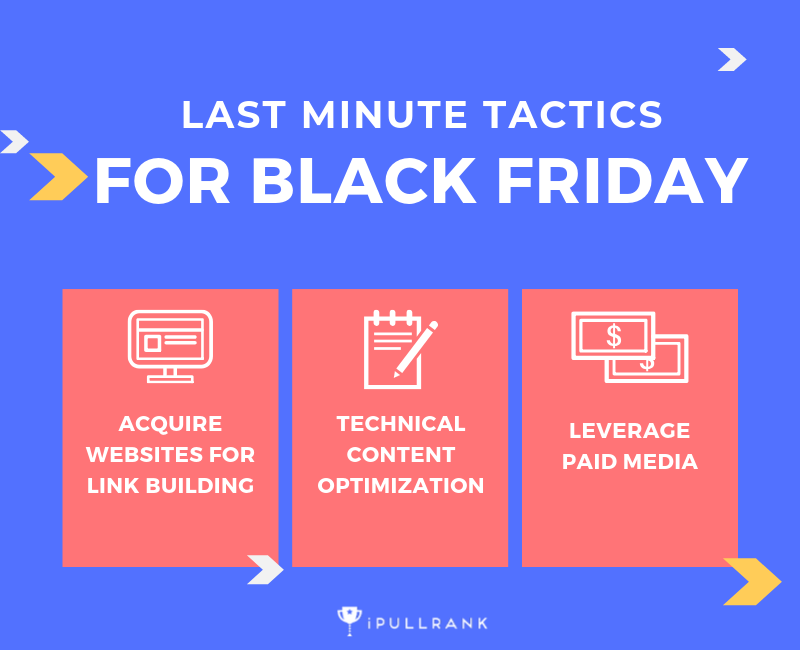
1. No one cares about your product page
The sad reality is that there is not much that is compelling about anyone’s product page. The idea that it will generate a ton of links overnight is artificial and not realistic. Granted, there are instances where your product page may be newsworthy or there may be communities with recipes that include your product thereby making the link make sense. However, that is not the type of link equity you’re likely to capture at scale.
Unless you’re going to launch something that’s newsworthy with viral potential, you’ll basically need to buy links. Yeah, you read that right. Buying relevant domains, vetting them for spam and then surgically redirecting the content is the only truly viable and scalable link building tactic in this type of time crunch.
BuzzFeed recently highlighted this tactic as foul. They called out link schemes that scan for broken or expired links on major sites like the NYTimes, Forbes, and BBC and buys the expired domain to redirect it to another one. This practice is clearly for the purpose of sculpting Pagerank and violates Google’s guidelines.
However, there are some shades of gray in methods. We took a white-hat approach to this tactic for an online greeting company trying to rank last minute for a holiday card. After serious ranking fluctuations due to some bad links they brought in the past, we audited their backline profile, did a massive disavow of the offending links, and vetted domains with serious link equity for acquisition. Through standard, white-hat outreach tactics we were able to build 44 new links and this last-minute effort improved their first-page rankings for high-value terms.
I posit that there is nothing bad about this at all. You, as a business, are acquiring the assets of another business and integrating them with your business. This isn’t paying a site to link to you. This is similar to when businesses merge or one business absorbs another business. Links are a business asset and don’t go away just because two businesses decided to join forces.
There are probably existing sites under your brand that are being shuttered and can also be redirected. Outside of that, I’m of the belief that Google has the ability to compare their previous cached versions of a given page before deciding to forward the link equity to the new URL.
2. The Supreme Value of Technical Content Optimization
E-commerce sites are perhaps the most susceptible to content that makes pages suboptimal for Organic Search. Most things are duplicate, products come and go rapidly thereby putting holes in your internal linking structure, and external link equity. If your site’s big enough and changing fast enough, any crawl you run is out of date before you finish. Product driven sites are rapidly deploying new things and breaking old implementations.
One way to rectify this is (aside from an iron-clad redirect strategy) is to prioritize on-page SEO and technical content optimization. This means putting an emphasis on consumer-facing content (copy, images, videos) and architecting that content in a way that meets the statistical expectations of search engines.
This means evaluating and optimizing content in relation to NLP, computational linguistics and information retrieval. Instead of looking to “Black Friday 2019” as your keyword target and inserting it over and over into your copy, look to Technical Content Optimization to better understand what Google is looking for when it parses a query for Black Friday 2019.
Some questions to ask:
- What is Google’s expectations of a page on the topic of Black Friday?
- Research and look to what is currently ranking. Does your page have parity? Can you do it better?
- What phrases should we target?
- Look to entities and then look to close variants, synonyms, term frequency, stemming and lemmatization of those entities. Search engines make correlations between entities. Black Friday as an entity is correlated to other entities including “Christmas”, “Thanksgiving”, “Cyber Monday” and “Small Business Saturday” just to name a few. While you won’t include all of these phrases in your copy, including relevant ones prime your pages for both search engines and users. Direct keyword targeting is no longer good enough.
- How to improve content authority?
- Build links to relevant and equal external content. If strapped for time, try site acquisition. Build internal links to relevant content.
- How to build incremental growth?
- Continually review the performance of your content and perform content experiments including CTR testing on metadata.
3. Bottom Line: Procrastion Costs
If you’re really behind, I’d surmise that your team has or is developing a paid media strategy. This is sound for queries that may be usurped by aggregators like “your brand + product” but will get crazy expensive for broader queries with high competition during this time of year.
Ad spends for Cyber Monday 2018 increased nearly 105% above average as CPCs rose 12% over the previous year. That’s a lot of dollars to capture traffic and queries that your brand should be visible for in Organic Search.
Since you’ve waited until the last minute, your Black Friday page and holiday content may not rank as well and will need a paid push. Visual shopping engines like Google Shopping, Facebook Ads and Instagram Shopping all prioritize images and click-to-buy that can help drive holiday sales on key items. Unfortunately, it will cost you.
Brass Tacks
Black Friday and leading up to Christmas is the Olympics for E-commerce brands. Cyber Monday was basically designed for e-tail. These are built-in opportunities to capture shoppers that are ACTIVELY searching. Waiting too long to optimize content, build links and position content to rank, is more than a missed opportunity, it’s a poor business practice.
A larger SEO strategy should have a plan in flight by late September to rollout holiday content and seasonal sales pages. That includes holiday-focused, widely iterative keyword research based on Technical Content Optimization, a strategic holiday content plan and an ongoing link building strategy.
But time is ticking and if you’re just now reading this, you’re going to need the last-minute tactics. Keep us in mind for next year.
Need more proof? Download our Case Study on how we helped a greeting card company recover from spammy link building and recapture the attention and spirit of holiday shoppers.

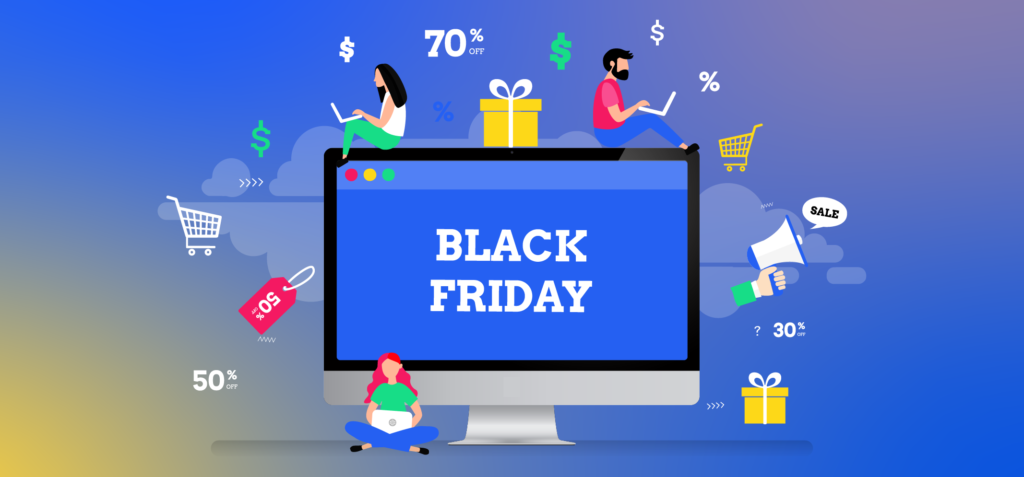
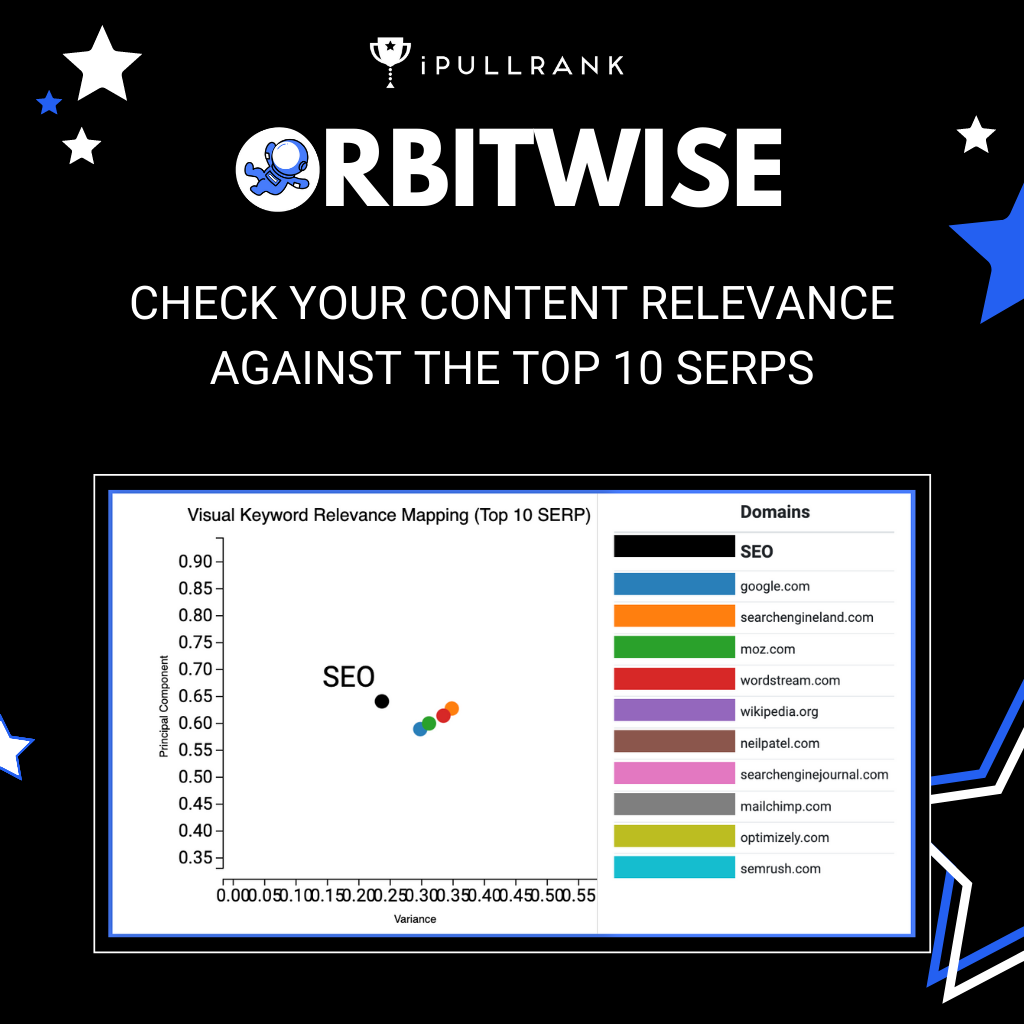
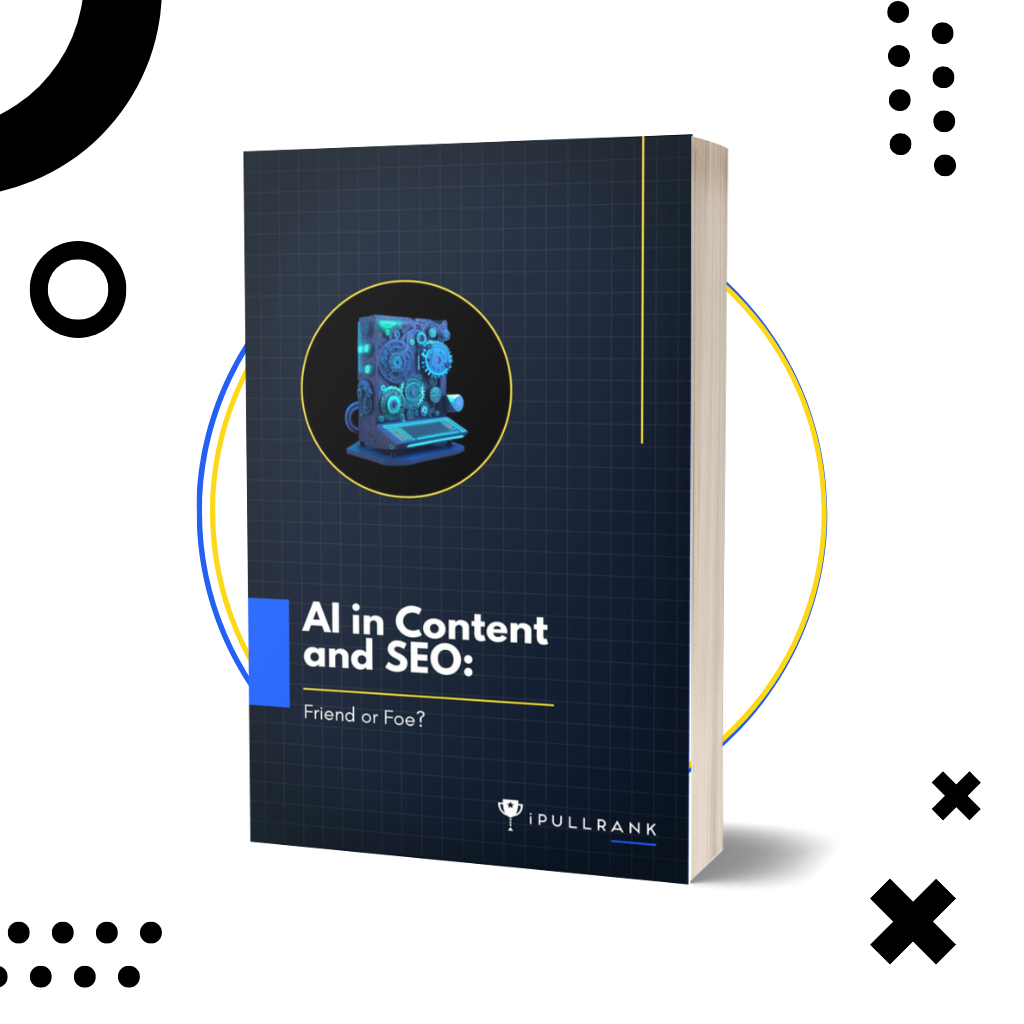
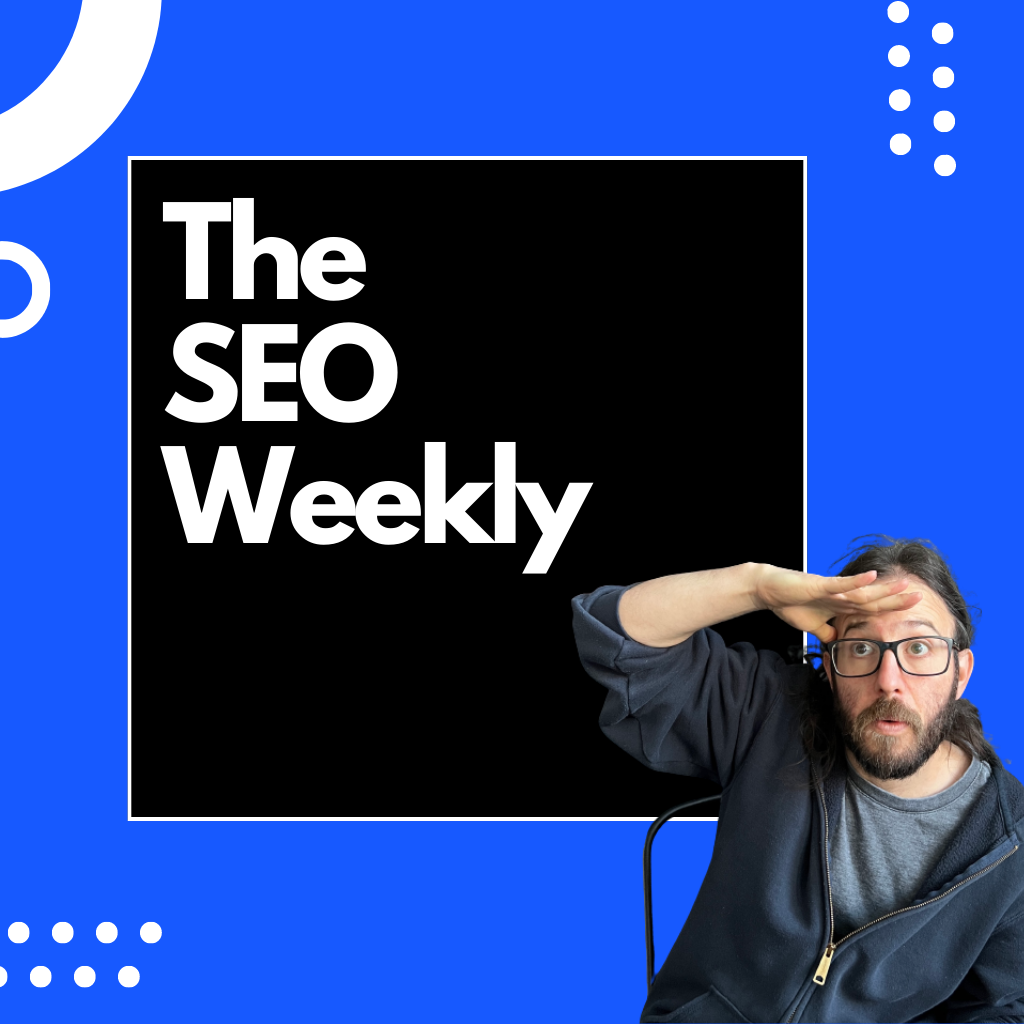

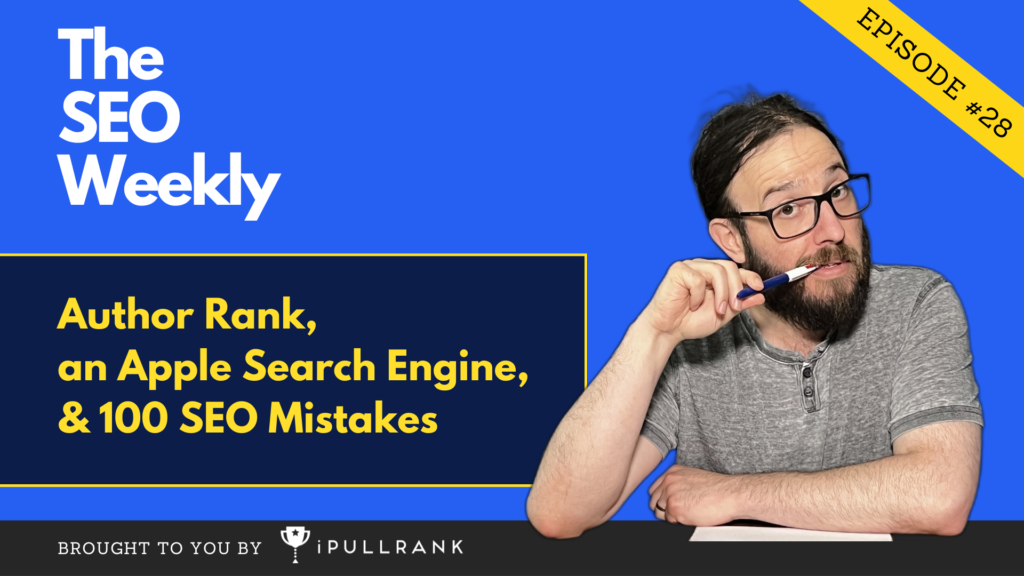
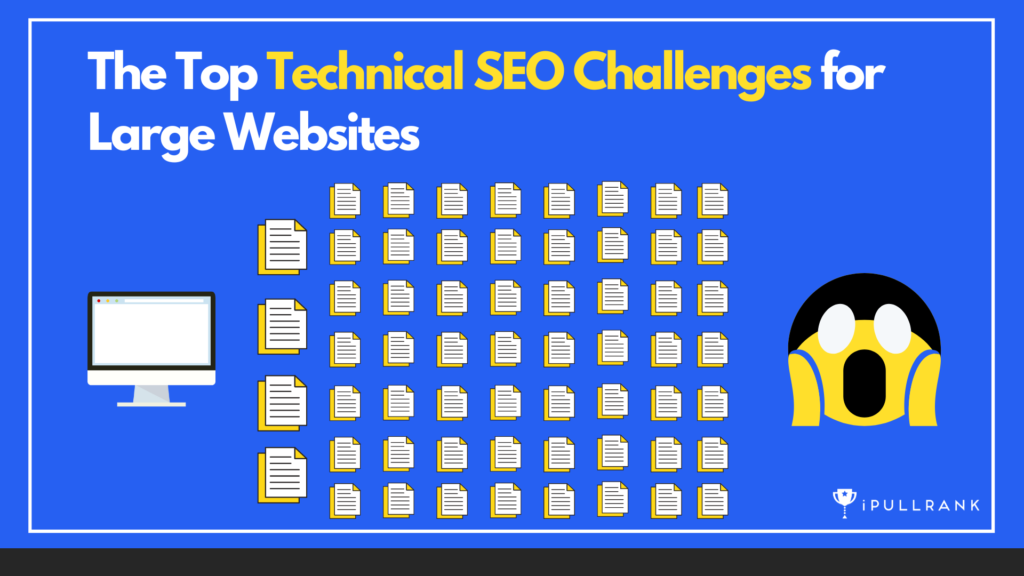


Leave a Comment